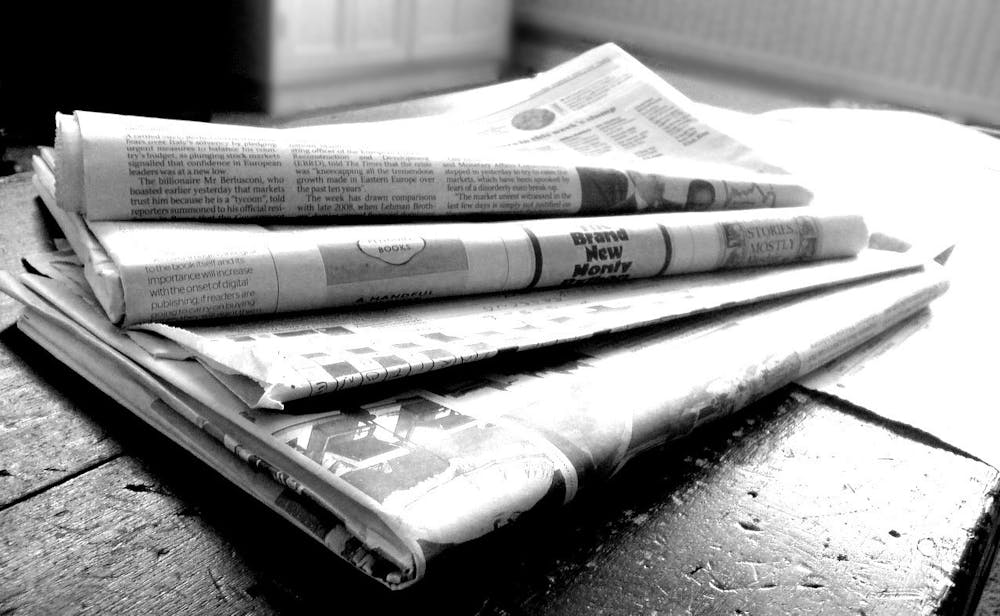Just a few weeks ago several multi-way ties in multiple Iowa caucus districts had to be decided by coin toss. Two years ago, the race for the majority-determining seat in Virginia’s House of Delegates tied and was decided by pulling a name out of a hat. A randomly selected slip of paper determined the state’s entire legislative agenda for two years! Evidently, your one vote has the power to change history, and it ought to be a responsible one.
But how do you strike a balance between informed and overwhelmed? According to the Pew Research Center, over two thirds of Americans feel “worn out” by news fatigue, and, in this super-polarized era, being politically informed can seem like an invitation not just to burnout but also to melancholy and rage. Where’s that nice civic middle ground between ignoring it all and throwing a drumstick at your uncle during Thanksgiving? Trust me, it’s there. You can be politically informed and keep your soul (and your friends) at the same time. All it entails is a smart and actually more convenient news diet.
Half of our generation gets their news online. To consume online news responsibly, it helps to think about it in terms of another illicit substance: social media. Conscientious users have to treat The New York Times like they treat Twitter and avoid binging. Headlines can be catchy, speaking of destruction and chaos and “[insert here] will never be the same again.” One story contains many links to others, and it’s easy to fall down a rabbit hole. Where Instagram has infinite scroll, the NPR One app has infinite listen, with an algorithm that determines what kind of news and podcasts you like and plays them for you eternally. Endless podcasts! Endless, that is, until you shut off the app after an hour or so, or your phone does it for you, and you don’t return to it for another day.
Casually timing your consumption of news is doable, and it stops you from sacrificing chunks of your day to get over-read instead of well-read. Use your phone’s setting if possible, download a third-party app if necessary, or read a good-old-fashioned clock if you can (kudos to you). Limiting the intake means limiting the newscast heartache.
Another fun and anachronistic way to do this is to read an actual paper newspaper. You cannot lose yourself in a paper because all the information is self-contained in the pages. You read it once, in the morning or afternoon, and you’re ready to face the day knowing everything you need to, and, as the Nassau Weekly recently reminded us, crosswords just hit differently when done in pen anyway. There are abundant fresh dailies provided every morning in Firestone!
Limiting your intake has another benefit, too: maximizing your humanity. The ubiquity and ease of access to news and information means our generation, to quote the comedian Dave Chapelle, can’t care about anything “because we know every goddamn thing.” If you read about tragedy every day, you become numb to it, and death and despair lose reality. Psychologists call it compassion fatigue. Controlling your intake is the first step to regaining this empathy.
Also, there's no need to catch up every day. The 24-hour news cycle is a business model, designed to ensnare our attention. Colorful flashes of “BREAKING NEWS” often reveal that nothing is actually broken. A story developed a little is all there is, and it makes no real difference whether you learn about it immediately in a FOMO flurry or in a few days on a leisurely Saturday morning in a “weekly roundup” article.
Finally, fret not about understanding every little thing, like what UBI or Soleimani refer to. Know enough to be confident at the ballot box and be understanding in debate with your relatives and friends “on the other side” because, in the end, we’re really not on different sides — just different television channels.
Brandon Gautier is a first-year from New Orleans, La. He can be reached at bmg4@princeton.edu.









